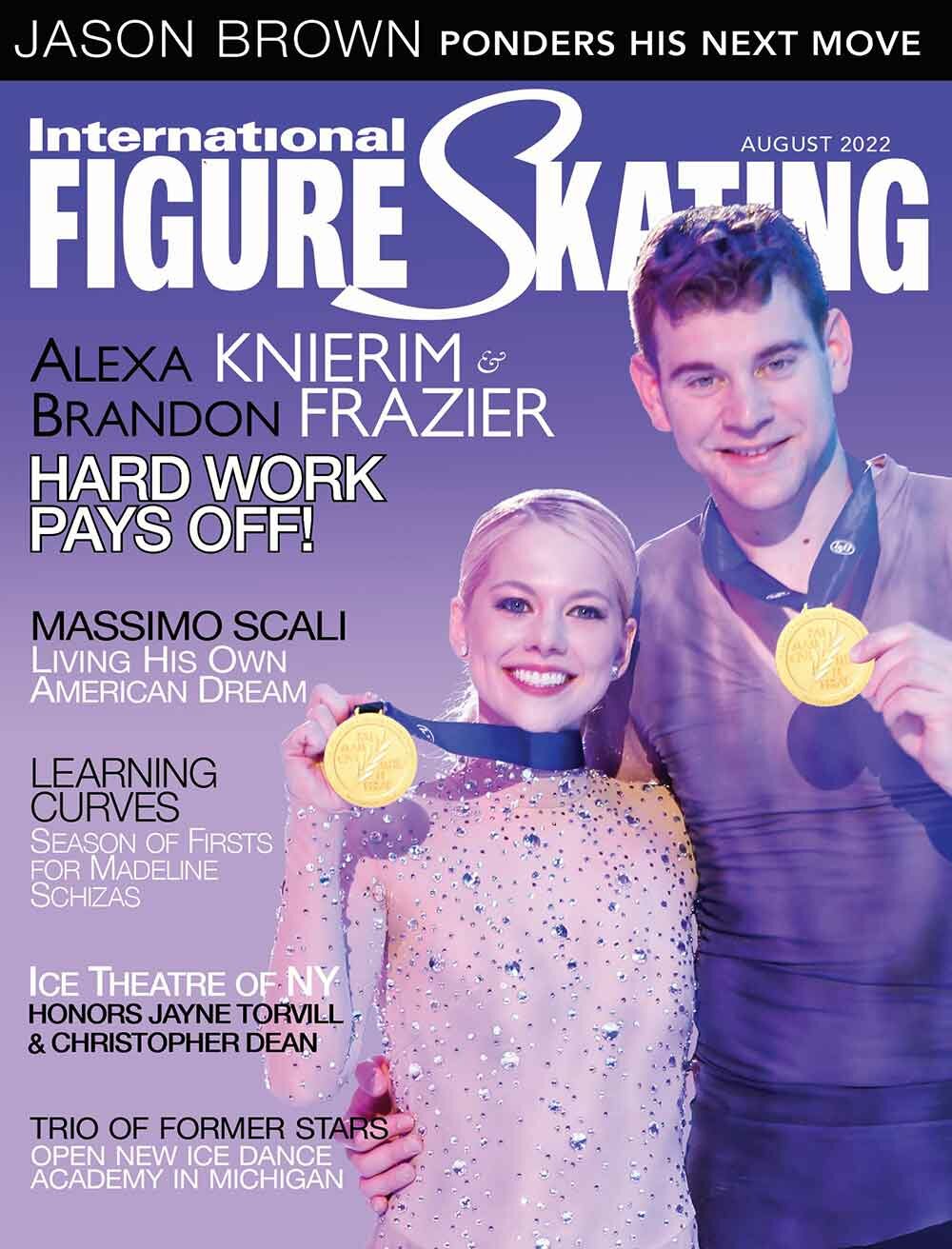

It was a moment Madison Chock and Evan Bates had waited a long time for. After capturing their first national ice dance title right here in Greensboro five seasons ago, the duo descended in the rankings both domestically and internationally. While other teams have attempted to climb back to the top, it is rare in ice dance that to see that happen. But a half-decade after that triumphant moment in 2015, Chock and Bates made that almost unimaginable leap back to the top of the U.S. Championships podium.
In a field of just nine teams, Chock and Bates kicked off the 2020 campaign by winning the rhythm dance at the 2020 U.S. Figure Skating Championships, despite a momentary loss of balance by Chock in the Finn Step pattern that was graded a Level 3. That was the only mistake in the program with all the other elements earning Level 4s. “I think it was as free and as spontaneous as we’ve been in this program all season, and that has been the goal for us,” said Bates. The duo earned a career-high 87.63 points for their efforts.
Last to take the ice in the free, Chock and Bates laid down an entrancing performance of their Egyptian Snake Dance (“Yearning” by Raul Ferrando, “Sahara Nights” by DJ Quincy Ortz and “Layali Al Sharq” performed by the Al-Ahram Orchestra), which has been a hit with judges and fans all season. As Chock transfixed the audience in her role as the serpent, they could only sit back and watch as the charmer, Bates, fell victim to his partner’s dangerous game of cat and mouse.
Though it is a program that blurs the line between art and sport, the duo earned Level 4s for the lifts, spins and twizzles, with the circular step sequence graded Level 3. Chock and Bates also earned solid Grade of Execution (GOE) scores for all their elements and Program Component Scores (PCS) that included 12 perfect 10s for composition and interpretation. They closed out the competition with 221.86 points in total.
“It feels longer than five years. I feel like so much has changed, and so much about us as people has changed as well,” Chock said in reflection. “It’s a great feeling to feel that growth and to come back to Greensboro with a completely different perspective. We’re in a very good place, and cannot be happier with how the season has been going. We’ve worked so hard to get to this point in our career, to feel strong and confident and that there is still so much room for more growth. We’re just so thrilled.”
Chock and Bates leave Greensboro not only as champions, but also as record holders. They earned the highest scores for the rhythm dance, free dance, and combined total in U.S. Championships history.
Two-time and defending champions Madison Hubbell and Zachary Donohue were in the hunt for a third consecutive title, but problems left them in second in both segments of the competition and they finished in second-place overall.
Both expressed frustration with their performance in the free dance to “ A Star is Born.”
“Probably something that a lot of spectators wouldn’t notice is that coming out of our first element, the dance spin, we got turned around somehow and came out facing the wrong direction,” Hubbell explained. “The next four elements, which are pretty valuable elements, were all done facing the wrong direction. After the one-foot step sequence — and this is a testament to our training and our connection — that without saying anything, I was able to turn it around and luckily place our choreographic elements in the right direction.”
As a result of that miscue, Hubbell and Donohue were tentative throughout the program, lacking their trademark attack and the enthusiasm they usually bring, which helped propel them to the top of the U.S. dance podium the past two seasons. The duo persevered despite the distraction, but lost levels on the one-foot step sequence (Donohue only) and the curve lift before they were able to right the ship. Though they managed to keep things close, the mishap was too much to overcome in such a tight competition. They finished with second with 217.19 points.
“I think we’re a little bit disappointed,” Hubbell admitted. “We’ve made a lot of improvements to our skating quality — especially in the free dance, and we were looking forward to giving our best in this performance. It was probably one of the hardest performances — not the most enjoyable. I don’t feel like we gave the best performance that we could give, but that’s competition.”
Kaitlin Hawayek and Jean-Luc Baker finished third for the second year in a row. Skating a Flamenco program to a modern version of Beethoven’s “Symphony No. 5” and Paganini’s “Caprice No. 24” by Polish guitarist Marcin Patrzalek, the bronze medalists seemed lethargic at points, even if they were able to execute the staccato choreography with the proper tension.
Despite the lack of energy, Hawayek and Baker executed clean elements but lost Levels on a spin, the one-foot step sequence, and the circular step sequence. The team finished with a career-high 201.16 points. “I think that we’ve trained for these performances and we’re quite proud of what we put out today,” Baker said. “We know we have a lot of growing to do and we haven’t had a chance to look at the sheets yet, but we are quite proud of where we’ve come with this.”
“We’re not one hundred percent satisfied with the complete beginning to end overall performance. We’re still incredibly hungry for the second half of the season,” Hawayek added.
Christina Carreira and Anthony Ponomarenko finished in fourth place with 194.16 points, ahead of Caroline Green and Michael Parsons who placed fifth with 180.25 points.
RELATED CONTENT:
2020 U.S. CHAMPIONSHIPS




